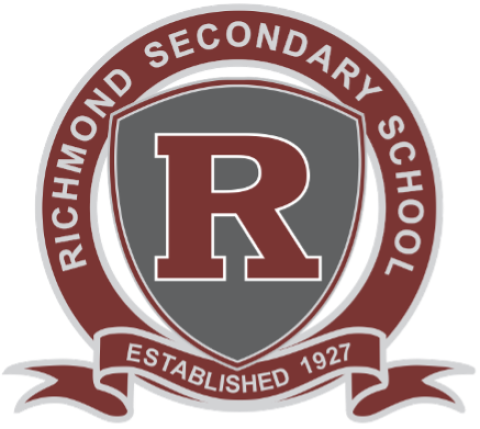Social Studies

SOCIAL STUDIES 08
Social Studies 8 examines the development of our world from the 7th Century to 1750 through the main concepts and "Big Ideas" of contact and conflict; human and environmental factors; exploration, expansion and colonization; and changing ideas about the world creating tension. Asian, European, Middle Eastern, North American exploration will be examined alongside the effect that first contact had with indigenous communities. The geography portion of this course will emphasize the use of maps, map skills, interpretation of charts, graphs and tables and the understanding of geographic terminology. For more information, please check out: https://curriculum.gov.bc.ca/curriculum/social-studies/8
SOCIAL STUDIES 09
Social Studies 9 examines the development of distinct cultures from 1750 to 1919. Revolutions, imperialism and colonialism, global demographic shifts, nationalism, conflicts, and discriminatory policies will be investigated. The interaction between indigenous peoples, early settlers, and modern migrants will be discussed. Big Ideas include: emerging ideas and ideologies influencing societies; the disparity in power alters the balance of relationships of individuals and society; how the physical environment influences political, social and economic change and how collective identity is constructed and can change over time. The geography portion examines the physiographic features and the geological process of Canada. For more information, please check out: https://curriculum.gov.bc.ca/curriculum/social-studies/9
SOCIAL STUDIES 10
Social Studies 10 is a required course for graduation in B.C. The course will examine Canada and the World from 1900 to present. The course will focus on "Big Ideas" including: how global and regional conflicts are a powerful force in shaping our contemporary world and identities; how economic, social, ideological and geographical factors influence political institutions; that world views lead to different perspectives and ideas about developments in Canadian society; and historical and contemporary injustices challenge the narrative of Canada as an inclusive and mulitcultural society. For more information, please check out: https://curriculum.gov.bc.ca/sites/curriculum.gov.bc.ca/files/pdf/10-12/social-studies/en_ss_10_caw.pdf
After Social Studies 10, all students must take at least one of the following Grade 11 or Grade 12 courses to meet the BC graduation requirements. This includes IB Diploma candidates.
EXPLORATIONS IN SOCIAL STUDIES 11
In this survey course, students will explore a variety of important themes and Big Ideas in the development of cultures, societies and political systems around the world. This course will examine events in the twentieth and twenty-first centuries and examine perspectives of indigenous peoples of Canada. Students will learn from a variety of select topics included in Grade 12 Social Studies courses such as human geography, history, law and social justice. Learn more at: https://curriculum.gov.bc.ca/sites/curriculum.gov.bc.ca/files/curriculum/social-studies/en_social-studies_11_explorations-in-social-studies_elab.pdf
BC FIRST PEOPLES 12
BC First Peoples 12 looks at how the identities, worldviews, and language of BC First Peoples are renewed, sustained, and transformed through their connection to the land.
Students will have the opportunity to study how cultural expressions convey the richness, diversity, and resiliency of BC First Peoples. The class will investigate how the impact of contact and colonialism continues to affect the political, social, and economic lives of BC First Peoples. Students will gain an understanding of how, through self-governance, leadership, and self-determination, BC First Peoples challenge colonialism in Canada.
This course meets the new graduation requirement to have 4 credits in an Indigenous Focused course for all students graduating in B.C. after September 2023.
HUMAN GEOGRAPHY 12
Human Geography is the study of the natural and human elements of our global environment. Students will explore and engage with the main themes of human patterns of growth, decline and movement, analyze data in demographic patterns and human activity such as cultural geography, urbanization, and industrialization and how they impact individual communities and the world.
20TH CENTURY WORLD HISTORY 12
20th Century World History 12 focuses attention on the world in the twentieth century. Fields of inquiry include: the legacy of the nineteenth century, the two World Wars, the turmoil of the 1920s and 1930s, the Russian Revolution, the Cold War and the rising tension in the Middle East. This course emphasizes the U.S.A. and U.S.S.R. as emerging world powers in the 20th century. Document studies and thematic essays are in integral part of the program.
LAW STUDIES 12
Law Studies 12 is designed to offer students an understanding of how legal rights and responsibilities allow citizens to participate more fully in society. Students will consider how laws protect the status quo and can also be a force for change and how a society's laws and legal framework influence many aspects of citzens' daily lives. Students will learn how laws are interpreted and how legal interpretations may evolve over time as society's values and world views change. Topics covered include Canada's legal system, Charter of Rights and Freedoms, human rights, youth law, criminal and civil law, indigenous law and the concept of justice and how laws are created. Students will analyze case studies, explore personal inquiry and consider many different view points in interpeting, understanding and applying the law.
SOCIAL JUSTICE 12
Social Justice 12 provides students with opportunities to examine the causes and issues of social justice locally, nationally and globally. Students will explore historical and current social injustices in B.C., Canada and other parts of the world and assess their causes and their impact. Key topics and themes include governmental and non-governmental organizations (NGOs) and the effectiveness of efforts to end poverty and other challenges of social justice. This course aims to actively engage students in socially just inititatives, to explore the differences between charity and justice, and study how they can transform individuals, systems and communities.
GLOBAL PERSPECTIVES 12
This course is not offered in 2025-2026.
IB HISTORY HL 11
This is the first year of the Higher Level IB History Program and the course fosters an understanding of major historical events in a global context. It encourages students to engage with multiple perspectives and to appreciate the complex nature of historical concepts, issues, events and developments. It invites comparisons between, but not judgments of, various political, economic, social, and cultural systems. The course examines the American systems of government, Slavery in America, the American Civil War, Reconstruction Era, and the causes and implications of World War I. Emphasis is placed on critical thinking, document studies, analytical skills, and history concepts like change, continuity, causation, consequence, significance, and perspective.
IB HISTORY HL 12
This course is the second year of the Higher Level IB History Program and students will build upon research, document analysis and writing skills and evaluation of historical perspectives. Areas of study will include 20th century world history: the Russian Revolution, the emergence of the USSR, USA and China as world powers, the rise and rule of authoritarian states, the move to global war (Italy, Germany, Japan), and the Cold War. This course also examines Latin American history with a focus on revolutionary case studies in Argentina, Chile, Cuba, Brazil and Mexico. American foreign and domestic policies of the 20th century will be addressed to offer a rounded perspective. Students will be required to complete the IB internal assessment and the IB History exam in May of Grade 12.
IB GEOGRAPHY SL 11
IB GEOGRAPHY HL 11
IB GEOGRAPHY SL 12
IB GEOGRAPHY HL 12
As with all IB Diploma courses, this is a two-year program and students may meet the course demands of either the Standard Level (SL) or the Higher Level (HL). This course is designed for the global-minded student who wants to expand their knowledge of the world while gaining an understanding of human activities and their impact on the environment. Contemporary issues will be examined such as: sustainability, climate change/crisis, urbanization, poverty, global networks, superpowers, population growth, cultural and economic patterns. In addition, themes such as access to health and food, impacts of tourism and sports on society will be explored. Throughout the two-year course, students will develop an international awareness and build on critical problem-solving skills. The required fieldwork component of the course will provide the opportunity for practical geographical skills by getting students to collect and analyze read-world data.
Students will be required to complete the IB internal assessment and IB Geography exam in May of Grade 12.
